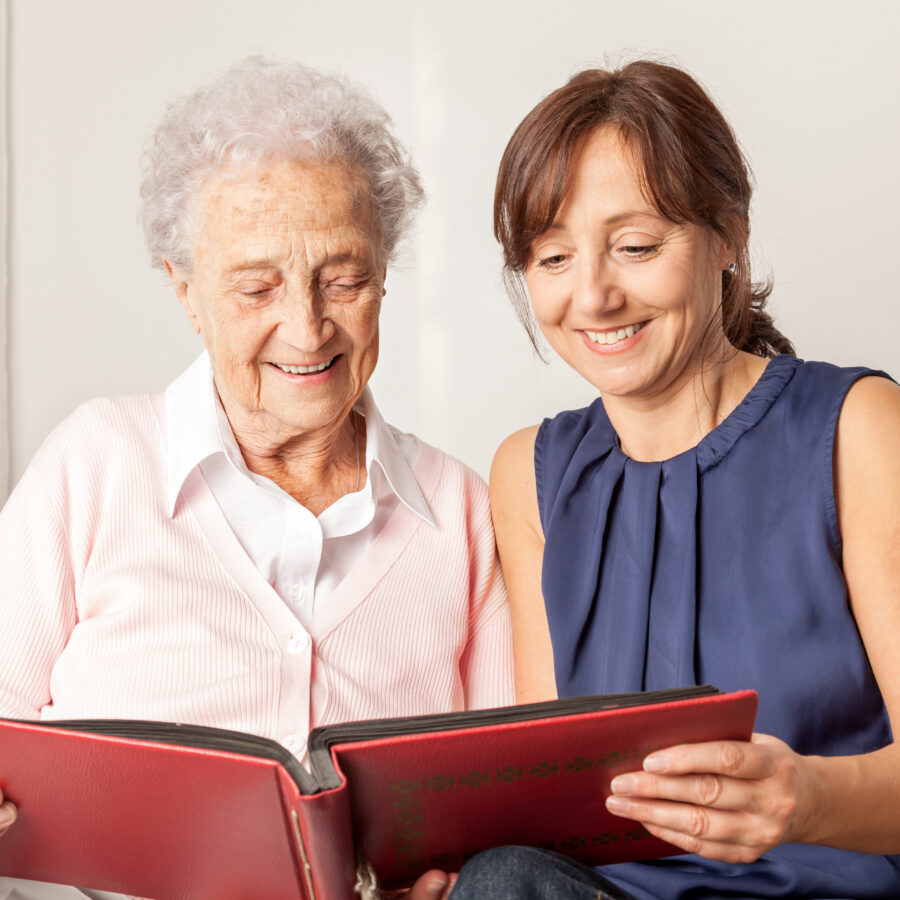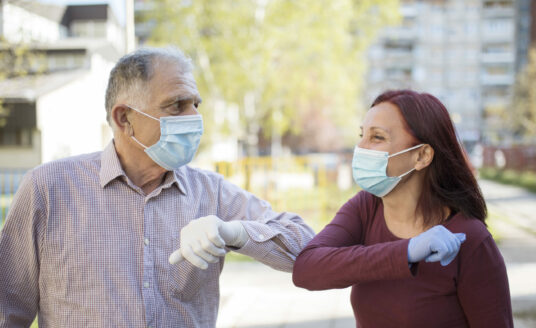When your senior loved one has been diagnosed with Alzheimer’s disease or another form of dementia, being designated as the primary caregiver can be a difficult task. If you follow these recommendations from the expert senior care professionals at Bethesda, caring for a senior with dementia or Alzheimer’s will be much easier.
Step One: Research the Diagnosis
Dementia and Alzheimer’s disease are subjects that many people avoid. In fact, according to a national study, more than half of people choose not to pursue an examination even when they believe something might be wrong. They fear such a diagnosis of dementia would equate to the end of their life.
However, facing the possibility of dementia or Alzheimer’s early is important. An early diagnosis means having access to treatments that can improve symptoms and slow disease progression. Also, early diagnosis provides more time for patient and loved ones to learn about the disease, find support, and prepare for the future.
What is dementia? What is Alzheimer’s disease?
Dementia is a group of symptoms involving a decline in mental abilities, such as reasoning and remembering, that significantly interferes with daily life.
Alzheimer’s disease, which is the most common form of dementia, results from the loss of connections between brain cells, which eventually die. Other causes of dementia include Parkinson’s disease, vascular diseases, and chronic drug use.
In most cases, dementia cannot be cured. There is no cure for Alzheimer’s disease, and its destruction of cells in other regions of the brain leads to failure in bodily systems which, coupled with advanced aging, prove fatal.
Resources for Dementia Caregivers
When dealing with a diagnosis of dementia or Alzheimer’s disease, it is important that you learn all that you can about you or your loved one’s condition. There are many sources of information for caregivers and those who are living with dementia or Alzheimer’s.
Grace McDonald, RN, assistant director of nursing at a Bethesda skilled nursing community, recommends two books to help in caring for a senior with dementia:
- The 36-Hour Day by Nancy Mace and Peter Rabins. This is a self-help guide for people caring for loved ones with Alzheimer’s disease, dementia, and other memory impairments.
- Creating Moments of Joy for the Person with Alzheimer’s or Dementia, by Jolene Bracky. The book speaks about living and creating joy, moment by moment, in the life of a person who has dementia.
For more information about dementia and Alzheimer’s disease, there is also the Alzheimer’s Association.
Step Two: Foster the Senior’s Independence
As a dementia caregiver, you may find the urge to do everything for your senior loved ones. However, it is beneficial for seniors with dementia and memory loss to feel independent and continue with any daily tasks they can manage.
“It is important for the senior’s physical and emotional health to let them to do as much as they can for as long as they can.”
Even if your senior loved one is not as self-sufficient as before, while caring for a senior with dementia, give them simple tasks to try on their own. A few ideas include:
- Help your senior loved one order from a menu by making suggestions
- Put out clothing options, so they can choose their own outfit
- Invite the senior to tell stories and share memories
Check out these additional tips from the Mayo Clinic for dementia caregivers.
Step Three: Build a Support System
Caring for a senior with dementia or Alzheimer’s you will need a helping hand now and again. Grace recommends reaching out to family members and friends for help. When they ask what you need, have a list prepared. For example:
- Grocery shopping
- Yardwork
- Cooking
- Cleaning
- Taking your loved one to their next medical appointment.
Even having someone sit with your loved one while you take a walk or run some errands can help you recharge and prevent burnout.
Visit the Alzheimer’s Association – Greater Missouri Chapter to discover additional support resources.
Step Four: Make Time for Yourself
Serving as the caregiver of a senior with Alzheimer’s or another form of dementia, especially if you are the only caregiver, can take its toll. If you are suffering from the symptoms below, seek help from a professional or reach out to your support system:
- Sleeplessness
- Reduced ability to concentrate
- Mood swings
- Depression
- Weakened immune system
“Caring for a senior with dementia is a hard job no matter how special the person is you’re caring for,” says Grace. “There will be times where you will feel frustrated and sad, and that’s OK. Just remember, you can’t pour from an empty cup.”
If you need assistance caring for a senior with dementia, Alzheimer’s, or any form of memory loss, contact Bethesda. Our memory support communities in the St. Louis area provide support to caregivers and families of seniors.
Contact us or schedule a tour to learn more.
| Bethesda has a 135-year tradition of providing excellent senior living options, including independent living, assisted living, memory care, and skilled nursing. If you are considering memory care, we welcome you to tour one of our exceptional communities, including Bethesda Dilworth, Bethesda Southgate, and Bethesda Hawthorne Place. Discover the level of care that only a non-profit staffed by highly-trained nurses, therapists, and aids can offer. |



